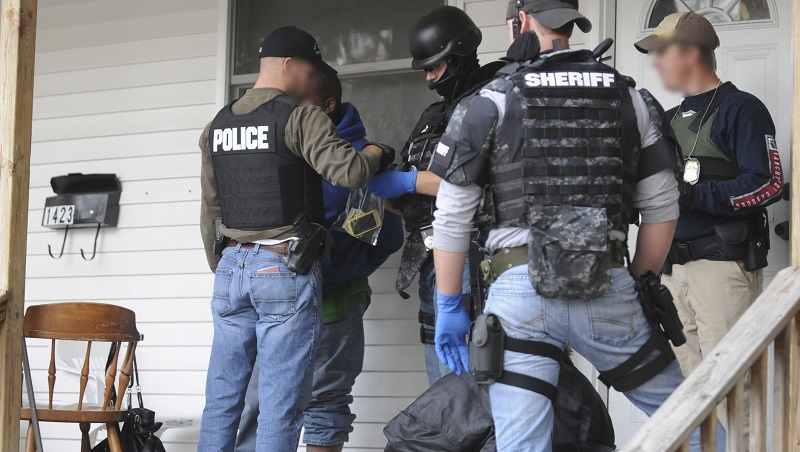

By Chief Joel F. Shults, Ed.D.
As laws and institutions become more complex, law enforcement has expanded to meet the challenge. The four categories of law enforcement that most people know about are federal, state, county, and local. But wait! There’s more!
Federal Agencies
Enforcement of the law is a function of the executive branch of government, therefore most of the agents with police powers to enforce federal law are employed by various agencies of the President’s cabinet. While most citizens know about the FBI, the Secret Service, the U.S. Marshalls, and the Border Patrol, there are over one hundred agencies with law enforcement responsibilities who partner with the Federal Law Enforcement Training Center (FLETC). A handful of other agencies operate their own training facilities as well, such as the FBI’s training academy at Quantico, VA.
Many of these federal agencies deploy uniformed officers with specific responsibilities. Those include securing federal facilities and protecting federal assets. Others are primarily investigative and most agents operate in plain clothes. A variety of undercover operations are performed as well. When we read that federal officers are being deployed to a hotspot, they may be pulled from a number of different agencies from those who protect our borders to those who protect our national parks. During presidential campaigns, the Secret Service is assisted by other federal law enforcement for the extensive demands for personnel.
The Department of Justice and the Department of Homeland Security are well-known umbrella agencies for federal agents, but every cabinet-level has investigators and protection specialists.
Military Law Enforcement
With millions of soldiers, airmen, marines, and sailors stationed all over the world and even in space, every branch of the armed services has its own highly trained law enforcement and investigative personnel. With its own set of laws, known as the Uniform Code of Military Justice, military courts and law enforcement have jurisdiction not only on the millions of acres of land, air, and sea but also over any service person no matter where they are.
State Agencies
States regulate who can be considered a peace officer with arrest authority, in addition to investigative bodies that may or may not have the power to arrest. Some agencies may have limited jurisdiction while others carry their arrest powers outside of their normal work assignment. For example, police officers in state parks may be limited to taking police action within the park boundaries, while some states authorize arrests anywhere within the state.
It should be noted that many states give automatic authority to federal officers, while some states require additional certification. For example, the FBI has jurisdiction over bank robberies because a federal agency that insures deposits can be a victim. But if an agent observes a convenience store robbery they may have to take action as a citizen’s arrest.
With elected sheriffs covering all of the territory of states, independent state law enforcement agencies were often begun with limited support or direct opposition of politically jealous sheriffs. This is one reason why some states have highway patrols and some have state police. In Missouri, for example, the state patrol began as the Courtesy Patrol with arrest powers limited to the roadways. In Colorado, the state investigative agency conducts investigations only at the request of the district attorney or another law enforcement agency.
States may also have specialty law enforcement such as brand inspectors, conservation and wildlife officers, and capitol police.
Local police
Many municipal police agencies began with an elected marshal with authority only over ordinance violations. There are still many smaller jurisdictions with marshals. Most police officers today work in towns of fewer than 10,000 population.
Special jurisdictions
If given authority by their state, public schools and colleges, transit operations, public housing complexes, hospitals, and other institutions may organize and staff their own police departments. Some states allow private campuses to have state license police officers, but many will have security or public safety officers who may be armed and have arrest authority on the grounds.
Another facet of law enforcement is tribal policing on native American land that is a sovereign nation within the United States. These agencies often partner with the FBI and the Bureau of Indian Affairs police.
Interagency cooperation
Most agencies that serve within or adjacent to other jurisdictions maintain good communication and cooperation. While they may not share the same special responsibilities, they almost always share responsibility for the same criminal elements.